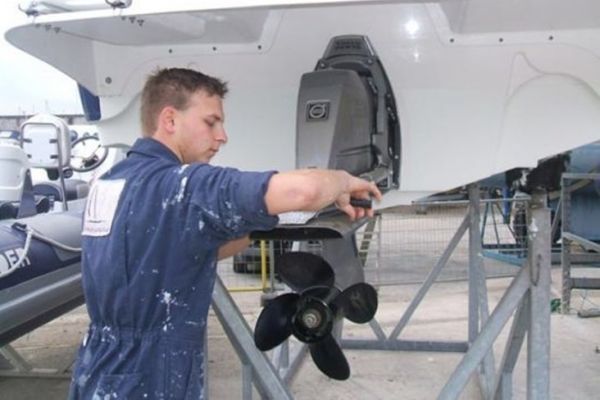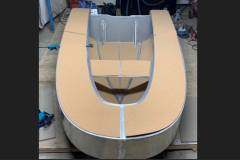An unprecedented regulatory framework to transform the management of professional textiles

Adopted in February 2020, the AGEC law marks a breakthrough in waste management in France. It aims to shift from a linear model âeuros produce, consume, throw away âeuros to a circular economy based on waste reduction, reuse and recycling. Textiles, and workwear in particular, are among the sectors most concerned.

The system is based on several pillars: extended producer responsibility requires all manufacturers to finance the end-of-life management of their products via an approved eco-organization, in this case Refashion for textiles. Companies that manufacture or sell work clothing, including personal protective equipment, are therefore required to contribute to the financing of collection, sorting and recycling.
In addition, since January 2022, it has been forbidden to destroy unsold non-food items, obliging companies to direct unused stocks towards reuse or recycling channels. In addition, since February 2023, sorting signs have been compulsory: the Triman logo, accompanied by instructions, must appear on all garments placed on the market. This system commits manufacturers to thinking upstream about the recyclability of their products.
Finally, a crucial deadline is looming: from January 1, 2025, all businesses will have to sort their textile waste at source, an obligation that extends the sorting system already in place for five waste streams (paper, plastic, metal, wood, glass). This measure makes textiles the eighth regulatory stream for companies generating waste.
A substantial volume of professional clothing that is still under-utilized

Every year, around 50,000 tonnes of work clothing are put on the market in France, representing almost 165 million pieces. Yet barely 30% of these textiles are collected for reuse or recycling. The remaining âeuros 35,000 tonnes are still disposed of by incineration or landfill.
There are several reasons for this situation. Firstly, specific channels for professional textiles are still emerging. Secondly, constraints linked to the visual identity, confidentiality or cleanliness of garments prevent them from being recycled in many cases. The figures remain modest: only 6.5 tonnes were recycled in 2023 as part of a pilot project run by La Poste, and a further 60 tonnes since 2020 via the Triethic company.
However, this situation is set to change rapidly. The obligation to sort waste by 2025 means that all âeuros business sectors, from healthcare to construction and civil engineering, not forgetting catering, hotels and local authorities âeuros, will have to set up appropriate collection solutions. The expected impact is considerable: from a few hundred tonnes currently recovered, the sector will have to absorb several tens of thousands of tonnes every year.
An industry under construction, driven by public and private initiatives
Faced with these new imperatives, a number of structuring initiatives are being launched to organize an industrial response that meets the challenges.

This is the case of Recygo, a subsidiary of La Poste in partnership with Suez, which in 2024 launched the first national network dedicated to professional textiles. This comprehensive system includes on-site collection, specialized sorting by Synergie TLC, and material recovery by Nouvelles Fibres Textiles. The aim is twofold: to help companies comply with regulations, and to create a sustainable industrial sector in the region.
For its part, Triethic has been offering a turnkey recycling service called Vimethic since 2020. This includes the provision of sorting bins, collection, removal of distinctive elements (logos, labels), and orientation towards reuse or material recycling depending on the condition of the garment. The approach includes a social dimension, since the company employs a majority of disabled people.
Other major players in the professional textile sector are also getting involved. The Elis group is experimenting with closed-loop recycling of its uniforms, with the ambition of creating new garments using fibers from used outfits. French manufacturer Cepovett offers a range of second-hand workwear under the SecondWear brand, as well as products incorporating recycled fibers.
Finally, several local authorities, such as the City of Paris, are involved in deploying local collection and recycling solutions. These experiments show that an ecosystem is taking shape, combining public players, private companies and the social economy.
Outlook: between technical constraints and transformation levers
Despite the current momentum, the professional textile recycling sector still faces a number of challenges.
The first is technical. Workwear is often composite, combining cotton, polyester, chemical treatments, technical reinforcements and non-textile elements such as buttons or reflective strips. These specificities make recycling complex. Although mechanical recycling (fraying) is now dominant, it generally only allows use in degraded products (rags, insulation). Chemical recycling, capable of separating mixed fibers, is still at an experimental stage.
The second challenge is economic. The cost of recycling remains higher than that of conventional disposal. Profitability will depend on the ability to create outlets for recycled materials. However, virgin fibers remain cheap, which hinders the development of circular alternatives. To stimulate the market, Refashion is introducing bonus schemes for products incorporating recycled materials, and legislation is being considered to penalize short-lived textile products.
Finally, a third challenge lies in the practical implementation of the regulations. Many SMEs are still unaware of their obligations. Without support, awareness-raising and controls, professional textile sorting is likely to remain theoretical. Monitoring and evaluation tools will be essential to avoid bottlenecks in the processing chain.
Nevertheless, the outlook is positive. The regulatory framework is now clear, industrial initiatives are multiplying, and public opinion is increasingly aware of the environmental impact of textiles. In a few years' time, workwear recycling could become an integral part of a company's CSR policy, in much the same way as paper sorting or bio-waste sorting are today.

 /
/ 











